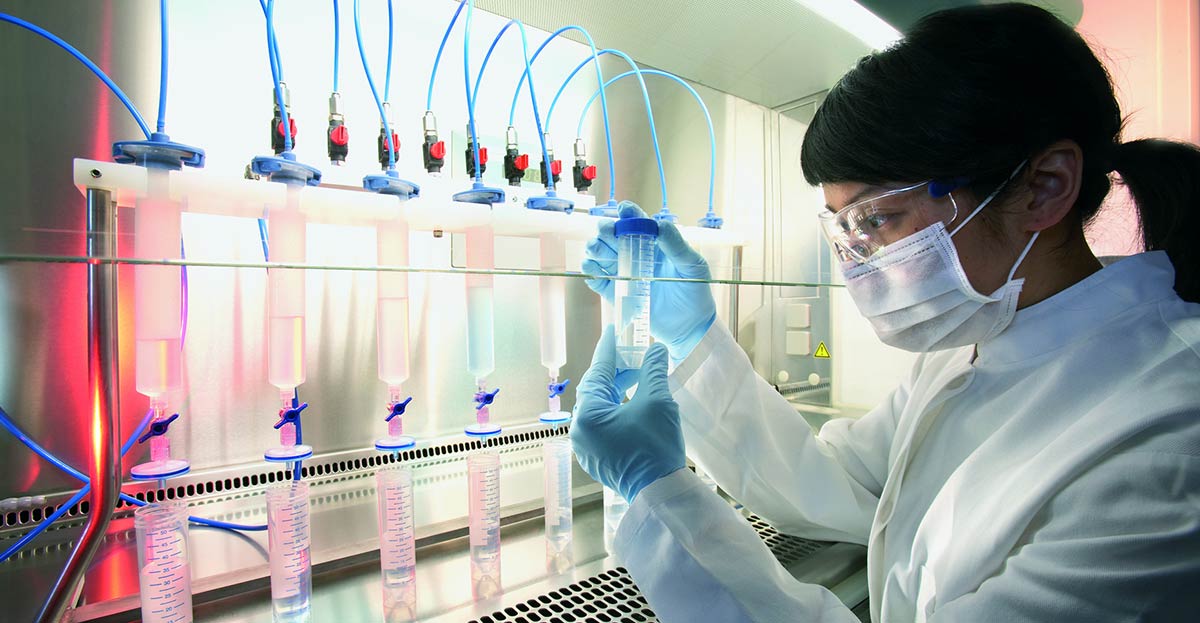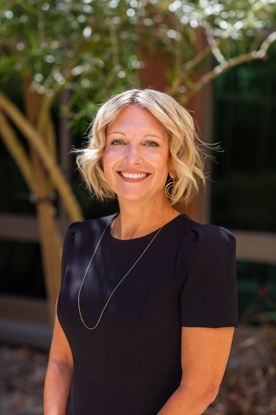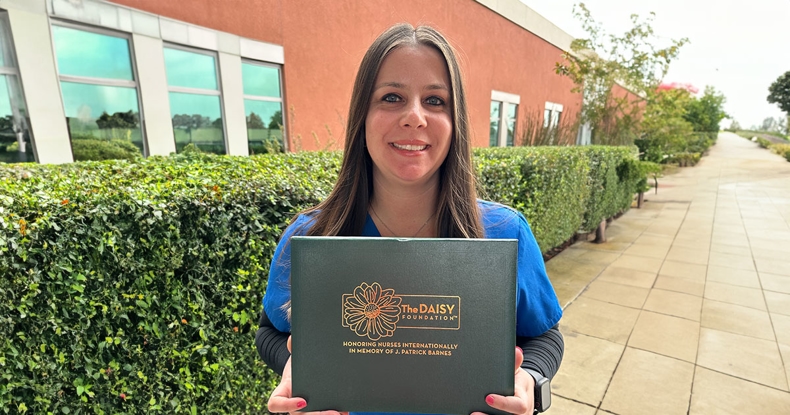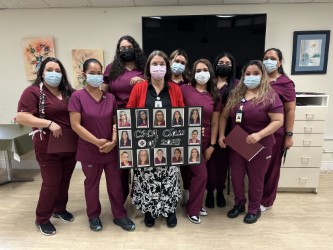Clinical Lab Scientist as a Career
- Category: LVMC Updates
- Posted On:
- Written By: Ann Ladwig

I am a Clinical Lab Scientist and I have been working in laboratories for almost 40 years. I had not heard of that type of job until I was almost 20 years old, so it was certainly not something I had been working toward in middle school and high school.
My mother was a middle school English teacher at Lompoc Valley Middle School and my father was a physicist aerospace engineer at Vandenberg Air Force Base. So I had a wide range of influences growing up.
I grew up loving to play teacher, using my sisters as students. They were not as excited about it as I was. My father taught me to observe the world around me and to be inquisitive. Mom taught me how to write about my experiences and express myself, and how to spell.
I discovered laboratory science during one class at Allan Hancock College when I was preparing to become a teacher and it changed my life. I loved it so much that I switched my major to Biology and transferred to California State University at Northridge. There, I concentrated on the medical technology option during my last two years of college.
To become a CLS, you must have a Bachelor’s Degree in Biology with a Medical Technology concentration. You will take lots of math and chemistry, and you typically end up with a minor in Chemistry. You will also take plenty of classes in Immunology, microbiology, hematology, parasitology, immunohematology (blood banking), virology, cell biology and more. You will learn all about the cells, fluids, systems of the body and how they all interact and function together.
After finishing your Bachelor’s Degree, you must apply for a CLS internship to complete your training. This is typically a year-long program in a hospital setting or a large, diverse laboratory where part of your time is working directly beside CLS mentors.
You will be learning techniques and procedures and actually perform the testing while rotating through various departments, including hematology, blood bank, chemistry, serology, urinalysis, coagulation, virology and molecular labs. In some institutions, you may have the chance to work in Andrology labs and fertility clinics, cancer centers, Polymerase chain reaction (PCR) or forensic labs, pathology or observe surgeries. Larger medical centers may be equipped with robotic track systems connecting their various analyzers, which is an interesting setup to see. When not on the bench working, your time is spent in lectures and learning sessions with pathologists, Ph.D.’s and teaching Clinical Lab Scientists.
After completing the internship, you will be equipped to take both national and California licensure exams.
Once you pass those exams, you will never be unemployed. There is currently a critical shortage of CLSs in the state of California and many people in the career are retiring during the next 10 years. The state has some of the most rigorous licensing requirements, so if you have passed the California and national exams, you should be able tow work throughout the country. Some CLSs work for agencies and travel throughout the U.S. and abroad, working temporary assignments.
CLSs have the option of working in hospitals, reference labs, research institutions (both private and associated with universities) and blood donation centers. A trained CLS can work in veterinary labs or at the Centers for Disease Control or in Public Health, for instance.
They can work hand-in-hand with physician groups that want to set up their own office laboratory. Laboratorians are needed in many different fields, for many different schedules. A CLS can also work for companies that research and formulate new tests and new equipment. They can travel the world setting up new assays and equipment and teaching other CLSs how to use them.
Being a Clinical Laboratory Scientist is an excellent career to work full or part-time. You can also get your Master’s degree or Ph.D. to go into an administrative role.
Just having your Clinical Laboratory Scientist license opens up a world of opportunities and options. In addition to working at LVMC as a Clinical Lab Scientist, recent job openings included UCLA Clinical Lab, St. Joseph Health System and Adventist Health Clinical Lab.
We have all learned the Scientific Method over and over in school and I have to tell you that we really do use it in this job. And to use it properly, you must be obsessive compulsive about being precise and consistent in your techniques and documentation. Our patients are unique individuals and occasions arise where we have to solve problems to turn out the lab results.
If you are a person who wants to make a difference with patients, but frankly, do not feel up to the intense hands-on care that is necessary for the field of medicine, laboratory science is the perfect job for you. You can make a difference in the patients’ lives and depend on the position that you hold, you can have as little or as much patient contact as you’d like.
The laboratory will stretch you with the various tasks you will be required to perform. In Blood Bank, you will need to be aware of antigen/antibody reactions; how a patient may react to a transfusion; the dynamics of the blood supplies in your region and the requirements of various surgical procedures.
You may deal with questions from a patient’s family regarding blood donations for their loved one. In Chemistry, you may have to know what to do to counteract substances in a patient’s specimen that is interfering with a testing assay so you can provide the doctor with a Stat test result. In hematology, you may have to interpret a 3-D graph of data points from your analyzer and adjust a laser on an instrument to facilitate an accurate cell count. Microbiology may find you enhancing a culture to isolate a pathogen so you can test antibiotics on it, allowing the physician to treat a patient effectively. In the lab, every day is different and it is never boring.
Being encouraged to pursue careers in science won’t compartmentalize you, it will expand your horizons and complete you because you will use all your skills in science. You need to have a good, well-rounded science education and the strong communication skills to share what you have learned and what you will discover.
The world needs new and eager Clinical Lab Scientists. It’s an amazing career.
Author: Ann Ladwig was reared in Lompoc and graduated from Cabrillo High School. She studied at Allan Hancock College and earned a Bachelor’s of Science degree in biology and chemistry from California State University at Northridge. She interned at Providence St. Joseph Medical Center in Burbank. She spent 10 years at St. Joseph’s as a Blood Bank specialist. She previously worked as a Clinical Laboratory Scientist at Cottage Hospital. She has been with LVMC’s laboratory for 25 years, working as a lab generalist; the Blood Bank and Hematology/Coagulation supervisor; Lead CLS and interim director. She became the Director of Laboratory Services in 2017. She serves on the LOVARC Board of Directors and is involved with the Cabrillo Band Boosters.





